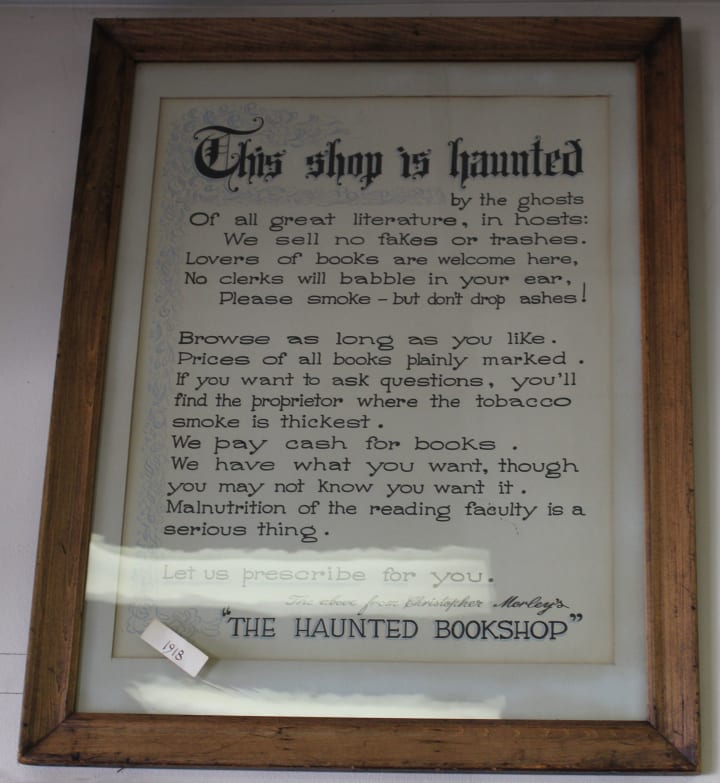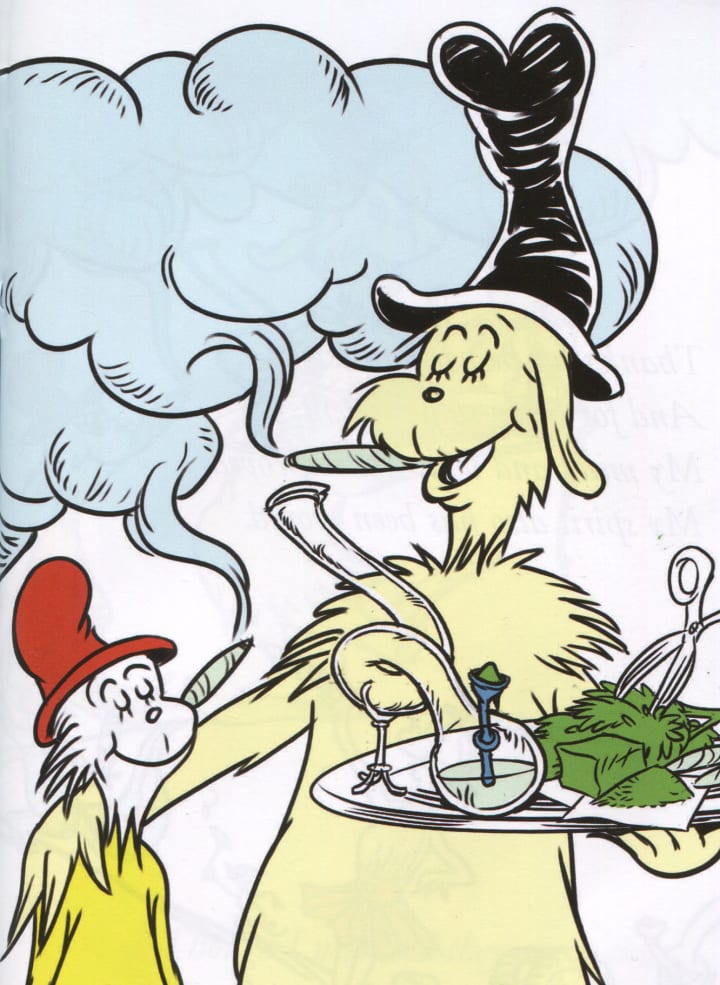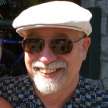The Joy of Reading
Thoughts on reading and teaching literacy

If there's one skill I value above all others, it is the ability to read. My mom told me that at an early age I could read back some of my favorite stories, though she wasn't sure whether I had just memorized them. In any event, reading came easily to me and I was always quite good at it.
When I was young I enjoyed the dystopian novel 1984 by George Orwell as well as Brave New World by Aldous Huxley. And all of the novels by John Wyndham. I didn't care for many of the mandatory novels we had to read in school but I enjoyed Shakespeare a lot.
It was in university that I really got into reading. I discovered Ayn Rand and that got me reading everything she had ever written. And it introduced me to a whole new world of reading. She got me interested in philosophy and I started taking philosophy courses. And she also sparked an interest in politics and economics. Subjects I was only vaguely aware of, let alone interested in, before. And she got me reading the novels of Victor Hugo, as well as the pulp fiction of Mickey Spillane.
While I did get a lot of knowledge in university, most of the things I considered worthwhile I learned from my personally selected reading. Politics, philosophy, history, psychology and countless fiction. And later, books on investing and the stock market.
Reading opened up a whole new world.
Unfortunately I am a bit of a slow reader. In university I took the Evelyn Wood Speed Reading course. If you're not familiar with it, it is based on the idea that you can see something more quickly than you can say something. Most people, when reading, speak or hear the words silently in their head. Each word is noted. But Evelyn Wood trained you to just note the words visually. You would scan down a page with your finger very quickly, barely a second or two, and go on to the next. Never speaking the words in your head, just absorbing them visually.
Apparently some famous people who had much to read, such as President John F. Kennedy read this way. Dr. Spencer Reid on the TV drama Criminal Minds reads this way. And it works. You do absorb the words. But after finishing the course, I reverted to the old way of reading.
Why? Frankly, I did not like speed reading. I like to savor the words as I read them. If I come across a turn of phrase I particularly like, I'll read it again, admiring the skill of the writer. With speed reading I would not notice at all. The content I would get. But the beauty of the words would be lost on me.
So I plod along. A good pulp novel, a page turner by Lee Child or John Sandford, may take me a week. A non-fiction work usually takes longer as I pause frequently to contemplate what I just read, compare it mentally to something else I may have read or something earlier in the book or something I had been thinking about. I'll often stop and look up something earlier in the book, or grab another book off my bookshelf and reread a relevant passage for comparison. I may get thrown off on a tangent by a reference and look it up. For instance, when I read Clive Cussler's Plague Ship, it mentioned the Corinth Canal and its 300 foot cliffs. I had to stop my reading and look the place up on Google Maps, and on Google Earth.
If there is one wish I could have fulfilled, it wouldn't be money or some super power. I would want an eidetic memory so I could remember everything I read without having to go back and look it up later.
One of the joys of being a bibliophile is the pleasure of browsing through used book stores. Books are not just fun to read, they are often works of art, especially old antiquarian books. Abbotsford where I live has two excellent second hand book stores. But some books are hard to come by.
A couple of years ago I got interested in the liberal philosopher Isaiah Berlin. I found his famous essay on Two Concepts of Liberty online. But it wasn't until on vacation in Victoria that I discovered Russell Books and came across Berlin's Political Ideas in the Romantic Age. A great find and a great read. But then I couldn't find anything else until last weekend when we dropped by MacLeod's Books in Vancouver, one of the venerable second hand book shops and one of the few remaining in the city. I hadn't been there in years. They had a shelf full of Isaiah Berlin and I left with three books.
This week we spent a few days visiting friends in Cobble Hill on the island and spent Wednesday exploring the shops along Beacon Street in Sidney. They had about a dozen book stores including great antiquarian and used shops. One was The Haunted Bookshop, named after a book by Christopher Morley. It is the oldest bookshop on Vancouver Island.

As I paid for the two books I snagged, I expressed my admiration to the clerk. Yes, he jibed. He was a regular customer but ran up a tab so large he now has to work there to pay it off! Not sure if he was kidding.
I have set myself a goal of two books a month, trying for four, alternating between fiction and non-fiction, classics and modern. As I noted, books open up a whole new world. I value literacy.
So much so that after I retired I started volunteering with the City of Abbotsford teaching adult literacy, both in computers and reading. Now that has been a fascinating experience. I never thought too much about what it would be like to be unable to read, or to read poorly. From my students I have learned to appreciate even more the gift of reading.
My first student was a lad of around twenty, born in Canada of east Indian extraction. A really nice, gentle soul who suffered from autism. He always came accompanied by a caregiver who picked him up at his parent's in the morning and accompanied him on various activities during the day. He was under care because it was feared he would be susceptible to coming under the influence of criminal gangs who might take advantage of his native naivety.
My student could read quite well. His problem was retention. He would read a paragraph or two and if you asked him about what he had just read he did not have a clue. But he did have a gift, as many autistic people do. He had a facility for geography. He loved maps. Ask him how far it was from Abbotsford to Merritt and he would have the answer instantly. So I geared my teaching to his talent. I bought him an atlas and had him read a short chapter on each continent at every lesson. His retention was still not great, but far better than with other subjects. I moved on to a book on space with maps of the solar system and the constellations. He quite enjoyed that too. And he was thrilled when I introduced him to Google Maps on the computer. He was taking a job training program and eventually stopped coming when he got a job.
My second reading student, who I still teach, is a man in his fifties of Portuguese background who just never got too far in school. A very nice guy. I started by doing up flash cards and trying to teach him using phonics. We had used phonics successfully with our own children, having them reading before they started kindergarten. But phonics was a lost cause with my new student. He is also a bit dyslexic and that may be part of the problem. So I moved on to books, Dr. Seuss in particular. I find books at a local second hand book store I think they may like. And that worked. His reading has improved a lot. He can rip through The Cat in the Hat like nobody's business. He keeps Dr. Seuss in his bathroom as reading material now. We're about ready to move on to more difficult matter.
My third student...well. There's a story. A former gang member with a tendency to violence, he's been in and out of jail a few times and is on methadone treatment for his heroin addiction.He came from a troubled background and now lives with a full time caregiver, a tough older man who can handle his rough patches but basically uses a method called gentle teaching.
This former gangster, for all his rough edges, took to my phonics methods so quickly, I moved him right into Dr. Seuss. This stocky tough guy, emblazoned with gang tattoos, prone to peppering his language with a lot of "f" words, has a soft spot for the good doctor. He loves Dr. Seuss! He loves the humour and the drawings. Sometimes for unexpected and comic reason.
One time he was reading One Fish, Two Fish, Red Fish, Blue Fish. The book uses a lot of made-up words. There's a page about someone who loves his gack ( a sort of pet animal). They play Ring-the-Gack, and it seems "We have the only gack in town". My student just roared. This was hilarious! "What's so funny?" I asked, not getting the humour. Seems gack is street slang for crystal meth! I laughed and said I didn't think that was what Dr. Seuss had in mind.
When I read that marijuana activist Dana Larsen had written a parody of Green Eggs and Ham, I popped into Marc Emery's Cannabis Culture shop in downtown Vancouver and got a copy just for my student. Needless to say, much hilarity ensued at our next meeting. And my student got through some very tough words as this parody is meant for adults. Very satisfying.

But when I contemplate my students, I feel a little sad that they have missed out on so much because of poor reading skills. The ability to read is a gift we should treasure. And hopefully, my small role will help these students broaden their horizons.
Note: I went on from teaching English and computer literacy to individuals to teaching small groups of five recovering alcoholics and drug addicts at a local treatment center. But that is a story for another time!
About the Creator
Marco den Ouden
Marco is the published author of two books on investing in the stock market. Since retiring in 2014 after forty years in broadcast journalism, Marco has become an avid blogger on philosophy, travel, and music He also writes short stories.
Reader insights
Outstanding
Excellent work. Looking forward to reading more!
Top insights
Compelling and original writing
Creative use of language & vocab
Eye opening
Niche topic & fresh perspectives
Excellent storytelling
Original narrative & well developed characters
Expert insights and opinions
Arguments were carefully researched and presented
On-point and relevant
Writing reflected the title & theme
Heartfelt and relatable
The story invoked strong personal emotions
Masterful proofreading
Zero grammar & spelling mistakes
Easy to read and follow
Well-structured & engaging content







Comments (1)
You should be very proud. On the other side how did someone take a book by Dr. Suess and turn it into a drug book.